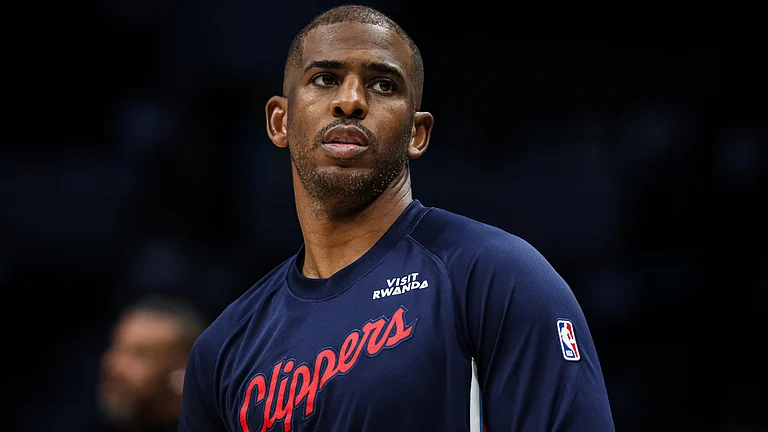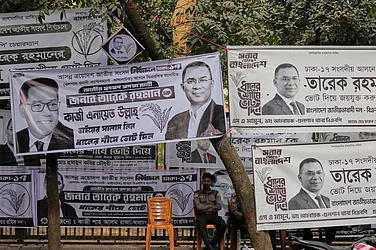Following extremely rare barrage of rockets into Israel from Lebabon, Israel on Friday carried out airstrikes inside Lebanon and continued with ongoing strikes in the Hamas-controlled Gaza Strip.
Israeli media reported that the rocket barrage from Lebanon was the largest since 2006 Israel-Lebanon War. Dozens of rockets were also fired into Israel from Gaza on the intervening night of Thursday and Friday in an escalation of the ongoing tensions in the region.
The dual assault on Israel comes in the midst of tensions with Palestinians that have been the highest in the past year in over a decade. Currently, tensions are high in Jerusalem over clashes at the Al Aqsa Mosque, the third holiest site in Islam. The clashes follow a series of attacks inside Israel in which several Israelis have died and Israeli raids in West Bank in which Palestinian casualties have mounted in recent months.
Moreover, the Israeli-Palestinian as well as regional tensions come at a time when Israel is facing unprecedented domestic turmoil. The proposed judicial overhaul by Prime Minister Benjamin Netanyahu led to unprecedented mass protests across the country, which forced the prime minister to halt the proposals for now.
Observers have said that Israel's regional rival Iran is using the opportune timing to open multiple fronts against Israel. Notably, Palestinian terrorist groups like Hamas and Palestinian Islamic Jihad (PIJ) and Lebanon-based Hezbollah are supported by Israel. However, the rockets from Lebanon have been blamed on Palestinian terrorist factions in the country and not Hezbollah.
34 rocket attacks from Lebanon, 44 from Gaza
At least 34 rockets were fired into Israel from Lebanon on Thursday and 44 were fired overnight from Gaza, reported The Times of Israel on Friday.
While Israel blamed Hamas elements in Lebanon, it did not acquit Hezbollah entirely.
"Israel blamed Lebanon-based Hamas forces for the afternoon attacks, with Israeli official sources saying it would not have been carried out without Hezbollah’s consent. Hamas leader Ismail Haniyeh is currently in Lebanon," reported
ToI.
Hamas is the largest Palestinian terrorist group. It controls the Gaza Strip. Its committed to the destruction of Israel along with other Palestinian terrorist groups like PIJ.
"The group’s ideology blends Islamism and Palestinian nationalism and seeks the destruction of Israel and the creation of an Islamic state between the Mediterranean Sea and the Jordan River...The group also receives financial and military support from Iran. Qatar has also provided significant funding for the group...Hamas’s preferred methods include suicide bombings, rocket and mortar attacks, shootings, and kidnappings," says think tank Counter Extremism Project (CEP) about Hamas.
The Israel Defence Forces (IDF) said 44 rockets and anti-aircraft missiles were launched into Israel from Gaza on the intervening night of Thursday and Friday. The Israeli Air Force responded to the barrage with air strikes in Gaza.
Israeli Air Force struck over ten Hamas targets in Gaza in response to renewed rocket attacks on the south, using around 50 tons of munitions, reported ToI, citing a defence spokesperson.
While several rocketes were intercepted by the Israeli air defence systems, several landed inside Israel and caused damage and injuries.
Rising Israeli-Palestinian tensions
These attacks on Israel come at a time when Israeli-Palestinian tensions are very high over clashes at the Al Aqsa Mosque in Jerusalem. The clashes itself follow a string of deadly attacks inside Israel and a series of deadly Israeli military raids in West Bank.
In 2021, an escalation also triggered by clashes at Jerusalem's Al-Aqsa Mosque compound, spilled over into an 11-day war between Israel and Gaza's Hamas rulers.
The AP notes that Israeli strikes in Lebanon risk drawing Lebanon's Hezbollah militia into the fighting, adding that the Iran-backed group, armed with thousands of rockets and missiles, holds sway over much of southern Lebanon and is viewed by Israel as a bitter foe.
"In recent years, Hezbollah has stayed out of other flareups related to the Al-Aqsa Mosque, which stands on a hilltop revered by Muslims and Jews. The Israeli military was careful to note in its announcement about Friday's attack that it was targeting only sites linked to Palestinian militants," notes AP.
The Israeli police raided the Al Aqsa Mosque twice on Wednesday. Trey Yingst of Fox News reported that the raids were over the Israeli opposition to traditional Palestinian overnight stay at the mosque during Ramzan, the holy month in Islam.
"When Palestinians realized that Israeli police would try to remove them from the mosque, they barricaded themselves inside. As Israeli forces tried to enter, they fired tear gas and stun grenades. The Palestinians launched fireworks from inside the building. Once inside, Israeli soldiers beat many of the Palestinians and arrested more than 350 people. There is video of this occurring. The Red Crescent said at least 12 Palestinians were injured. At least one was in critical condition overnight," reported Trey.
While some reports say rockets from Gaza followed Al Aqsa raids, some say the rockets are part of the Iran-backed plan to wrap Israel in a multi-front conflict. Clashes at Al Aqsa Mosque took place last year too between the Israeli forces and Palestinians.
"Just so folks are clear: there is now an Iran-backed effort to hit Israel on four fronts: Lebanon, Gaza, West Bank and Jerusalem. And they’re wielding Ramadan as the predicate," said think tank's Foundation for the Defense of Democracies' (FDD) Jonathan Schanzer.
In Jerusalem, the situation remained tense at Al-Aqsa. For the previous two nights, Palestinians barricaded themselves in the mosque with stones and firecrackers.
Worshippers have been demanding the right to pray overnight inside the mosque — which authorities typically only permit during the last 10 days of the monthlong Ramazan holiday. They also have stayed in the mosque in protest over threats by religious Jews to carry out a ritual animal slaughter at the sacred site for Passover.
(With AP inputs)


























